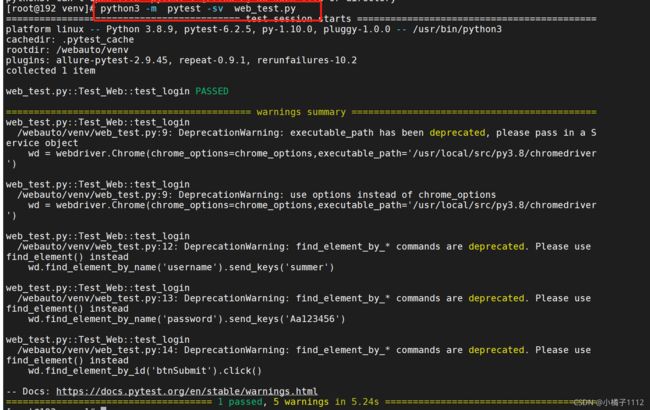- GitHub霸榜神器!NextChat领衔DeepSeek全栈开发范式
大禹智库
《向量数据库指南》《实战AI智能体》机器学习RAGAI智能体人工智能ManusdeepseekNextChat
一、项目概况与生态定位NextChat(原ChatGPT-Next-Web)是GitHub上斩获81.2K星标的现象级开源项目,定位为"轻量级AI助手终端",支持DeepSeek、Claude、GPT-4、Gemini等20+主流大模型。其核心价值在于以5MB超小客户端实现跨平台(Windows/Mac/Linux/iOS/Android)无缝衔接,同时提供云端一键部署方案,成为个人用户与企业私有
- 基于kylin-v10安装docker
神奇侠2024
rediskylin大数据docker
1、下载地址Indexoflinux/static/stable/x86_64/2、下载docker-24.0.5.tgz.tar版本3、上传服务器解压tarxvfdocker-24.0.5.tgz.tar4、解压的docker拷贝或移动到/usr/bin/目录下cpdocker/*/usr/bin/5、编写docker.service文件加入Linux服务当中并开启守护进程vi/etc/syst
- python中strip的使用
ICER瞌睡虫
今天聊聊python去除字符串空格的函数:strip()和replace()1.strip():函数功能描述:Pythonstrip()方法用于移除字符串头尾指定的字符(默认为空格或换行符)或字符序列。注意:该方法只能删除开头或是结尾的字符,不能删除中间部分的字符。格式:str.strip([char])。其中,str为待处理的字符,char指定去除的源字符串首尾的字符。返回结果:去除空格时候的新
- 基于python+django的家教预约网站-家教信息管理系统源码+运行步骤
冷琴1996
Python系统设计pythondjango开发语言
该系统是基于python+django开发的家教预约网站。是给师妹做的课程作业。大家在学习过程中,遇到问题可以在github给作者留言。共同学习进步哦效果演示前台地址:http://jiajiao.gitapp.cn后台地址:http://jiajiao.gitapp.cn/admin后台管理帐号:用户名:admin123密码:admin123源码地址https://github.com/geee
- python strip函数用法_Python字符串函数strip()原理及用法详解
weixin_39944233
pythonstrip函数用法
strip:用于移除字符串头尾指定的字符(默认为空格)或字符序列。注意:该方法只能删除开头或是结尾的字符,不能删除中间部分的字符。语法:str.strip([chars])str="*****thisis**string**example....wow!!!*****"print(str.strip('*'))#指定字符串*输出结果:thisis**string**example....wow!!
- python中strip_python中的strip是什么意思
weixin_39613744
python中strip
Python中strip()方法用于移除字符串头尾指定的字符(默认为空格或换行符)或字符序列。注意:该方法只能删除开头或是结尾的字符,不能删除中间部分的字符。它的函数原型:string.strip(s[,chars]),它返回的是字符串的副本,并删除前导和后缀字符。(意思就是你想去掉字符串里面的哪些字符,那么你就把这些字符当参数传入。此函数只会删除头和尾的字符,中间的不会删除。)如果strip()
- python爬虫系列实例-python爬虫实例,一小时上手爬取淘宝评论(附代码)
weixin_37988176
前言本文的文字及图片来源于网络,仅供学习、交流使用,不具有任何商业用途,版权归原作者所有,如有问题请及时联系我们以作处理。1明确目的通过访问天猫的网站,先搜索对应的商品,然后爬取它的评论数据。可以作为设计前期的市场调研的数据,帮助很大。2爬取评论并储存(首先要进行登录,获取cookie)搜索你想收集的信息的评价,然后点开对应的产品图片。找到对应的评价的位置。找到对应的位置之后就可以进行数据的爬取了
- python基于Django的旅游景点数据分析及可视化的设计与实现 7blk7
qq2295116502
pythondjango数据分析
目录项目介绍技术栈具体实现截图Scrapy爬虫框架关键技术和使用的工具环境等的说明解决的思路开发流程爬虫核心代码展示系统设计论文书写大纲详细视频演示源码获取项目介绍大数据分析是现下比较热门的词汇,通过分析之后可以得到更多深入且有价值的信息。现实的科技手段中,越来越多的应用都会涉及到大数据随着大数据时代的到来,数据挖掘、分析与应用成为多个行业的关键,本课题首先介绍了网络爬虫的基本概念以及技术实现方法
- python strip()函数
牛也唱歌
strip函数原型声明:s为字符串,rm为要删除的字符序列.只能删除开头或是结尾的字符或是字符串。不能删除中间的字符或是字符串。s.strip(rm)删除s字符串中开头、结尾处,位于rm删除序列的字符s.lstrip(rm)删除s字符串中开头处,位于rm删除序列的字符s.rstrip(rm)删除s字符串中结尾处,位于rm删除序列的字符注意:1.当rm为空时,默认删除空白符(包括'\n','\r',
- 用python执行js代码:PyExecJS库详解
数据知道
2025年爬虫和逆向教程pythonjavascript爬虫数据采集nodejs
更多内容请见:爬虫和逆向教程-专栏介绍和目录文章目录1.介绍和安装1.1PyExecJS介绍1.2安装JavaScript运行时1.3安装PyExecJS2.PyExecJS的基本使用2.1执行简单的JavaScript代码2.2使用外部JavaScript文件2.3先编译、后调用2.4传递参数和获取返回值3.PyExecJS的高级功能3.1指定JavaScript运行时3.2处理异步JavaSc
- Python中strip()函数详细讲解
甯公子_
Python入门程序python开发语言算法
strip()是Python中字符串(str)对象的一个内置方法,用于去除字符串开头和结尾的空白字符(包括空格、换行符、制表符等)。它不会修改字符串中间的空白字符。语法str.strip([chars])str:需要处理的字符串。chars(可选):指定要去除的字符集合。如果未指定,默认去除空白字符(包括空格、换行符\n、制表符\t等)。返回值返回一个新的字符串,去除了开头和结尾的指定字符。常见用
- 利用Python爬虫获取淘宝商品评论:实战案例分析
数据小爬虫@
APIpython爬虫开发语言
在数字化时代,数据的价值日益凸显,尤其是对于电商平台而言,商品评论作为用户反馈的重要载体,蕴含着丰富的信息。本文将详细介绍如何利用Python爬虫技术获取淘宝商品评论,包括代码示例和关键步骤解析。淘宝商品评论的重要性淘宝商品评论不仅对消费者购买决策有着重要影响,而且对于商家来说,也是了解市场需求、改进产品和服务的重要途径。因此,获取并分析淘宝商品评论数据,对于电商运营和市场分析具有重要意义。Pyt
- Python 自动探索性数据分析库———KLib
若木胡
toolspython数据分析开发语言
Python自动探索性数据分析库——KLib一、引言在当今数据驱动的时代,数据分析师和科学家们面临着海量的数据需要处理和分析。探索性数据分析(EDA)作为数据处理流程中的关键环节,旨在帮助人们快速理解数据的特征、分布、相关性等重要信息,从而为后续的深入分析、建模以及决策提供坚实的基础。Python以其丰富的生态系统和强大的功能在数据分析领域占据着重要地位,而KLib则是其中一款专注于自动探索性数据
- 源码篇:python生成《蔬菜店销售数据分析报告》案例
IT小本本
pythonpython数据分析开发语言
本文将通过Python实现一个完整的蔬菜销售数据分析项目,涵盖数据生成、清洗、分析及可视化全流程。我们将利用模拟数据生成技术创建90天的销售记录,通过Pandas进行数据处理,结合Matplotlib和Seaborn实现多样化的可视化图表,并最终生成动态交互报告。一、数据生成:模拟真实销售场景为了模拟真实的蔬菜销售数据,我们设计了包含10种蔬菜(白菜、土豆、西红柿等)的90天销售记录。数据生成逻辑
- JAVA毕业设计BS架构考研交流学习平台设计与实现计算机源码+lw文档+系统+调试部署+数据库
瑞致网络
java开发语言jvm
JAVA毕业设计BS架构考研交流学习平台设计与实现计算机源码+lw文档+系统+调试部署+数据库JAVA毕业设计BS架构考研交流学习平台设计与实现计算机源码+lw文档+系统+调试部署+数据库本源码技术栈:项目架构:B/S架构开发语言:Java语言开发软件:ideaeclipse前端技术:Layui、HTML、CSS、JS、JQuery等技术后端技术:JAVA运行环境:Win10、JDK1.8数据库:
- [附源码]Python计算机毕业设计SSM基于B-S的心理健康管理系统(程序+LW)
Python、JAVA毕设程序源码
java开发语言
环境配置:Jdk1.8+Tomcat7.0+Mysql+HBuilderX(Webstorm也行)+Eclispe(IntelliJIDEA,Eclispe,MyEclispe,Sts都支持)。项目技术:SSM+mybatis+Maven+Vue等等组成,B/S模式+Maven管理等等。环境需要1.运行环境:最好是javajdk1.8,我们在这个平台上运行的。其他版本理论上也可以。2.IDE环境:
- 5-1 使用ECharts将MySQL数据库中的数据可视化
上课的牛马
实训大数据
方法一:使用PythonFlask框架搭建API对于技术小白来说,使用ECharts将MySQL数据库中的数据可视化需要分步骤完成。以下是详细的实现流程:一、技术架构后端服务:使用PythonFlask框架搭建API(简单易学,适合新手)数据库连接:通过Python的pymysql库连接MySQL前端可视化:HTML+JavaScript+ECharts数据流向:MySQL数据库→Pyt
- 绕过 reCAPTCHA V2/V3:Python、Selenium 指南
qq_33253945
pythonseleniumjavascript网络爬虫爬虫算法
前言验证码(CAPTCHA)技术已经存在许多年,尽管它的有效性一直备受争议,但许多网站仍然依赖它来保护资源。尤其是Google推出的reCAPTCHA系列,一直是验证码领域的佼佼者。本文将详细介绍如何绕过reCAPTCHAV2和V3,并提供实用的代码示例。详情请见:解决验证码recaptcha、cloudflare、incapsula1.什么是reCAPTCHA?reCAPTCHA是Google推
- 计算机毕业设计JavaBS景区票务管理系统设计与实现(源码+系统+mysql数据库+lw文档)
毅铭科技
数据库
计算机毕业设计JavaBS景区票务管理系统设计与实现(源码+系统+mysql数据库+lw文档)计算机毕业设计JavaBS景区票务管理系统设计与实现(源码+系统+mysql数据库+lw文档)本源码技术栈:项目架构:B/S架构开发语言:Java语言开发软件:ideaeclipse前端技术:Layui、HTML、CSS、JS、JQuery等技术后端技术:JAVA运行环境:Win10、JDK1.8数据库:
- CSP-J备考冲刺必刷题(C++) | AcWing 11 背包问题求方案数
热爱编程的通信人
c++算法开发语言
本文分享的必刷题目是从蓝桥云课、洛谷、AcWing等知名刷题平台精心挑选而来,并结合各平台提供的算法标签和难度等级进行了系统分类。题目涵盖了从基础到进阶的多种算法和数据结构,旨在为不同阶段的编程学习者提供一条清晰、平稳的学习提升路径。欢迎大家订阅我的专栏:算法题解:C++与Python实现!附上汇总贴:算法竞赛备考冲刺必刷题(C++)|汇总【题目来源】AcWing:11.背包问题求方案数-AcWi
- 网页编辑器能否满足Word公式与图片的直接复制粘贴?
2501_90699800
编辑器wordumeditor粘贴wordueditor粘贴wordueditor复制wordueditor上传word图片ueditor导入word
要求:开源,免费,技术支持编辑器:百度ueditor前端:vue2,vue3,vue-cli,react,html5用户体验:Ctrl+V快捷键操作功能:导入Word,导入Excel,导入PPT(PowerPoint),导入PDF,复制粘贴word,导入微信公众号内容,web截屏平台:Windows,macOS,Linux,RedHat,CentOS,Ubuntu,中标麒麟,银河麒麟,统信UOS,
- python数据可视化绘制图表(直方图,饼图圆环图,散点或气泡图,误差棒图)
2224070304
信息可视化python数据分析
一,直方图#先导入模块importnumpyasnp importmatplotlib.pyplotasplt#准备50个随机的数据scores=np.random.randint(0,100,50)#绘制直方图plt.hist(scores,bins=8,histtype='stepfilled')plt.show()其中,scores为数组(可为单个或多个的数列)bins=8,表示矩形的条数为
- 用Python实现SFM
薄辉
pythonopencv计算机视觉人工智能图像处理
SFM(结构化光流法)是一种用于解决三维重建问题的方法,它可以根据许多二维图像和它们之间的相对位置,估计出三维场景的深度和摄像机的姿态。在Python中,你可以使用OpenCV库来实现SFM。下面是一个简单的例子,展示了如何使用OpenCV库的cv2.sfm_create函数来实现SFM:importcv2#读入图像,存入列表images中images=[]foriinrange(1,11):im
- 使用Python轻松拆分PDF,每页独立成文件
AI航海家(Ethan)
pythonpythonpdf
使用Python轻松拆分PDF,每页独立成文件嗨,各位PDF爱好者!如果你曾经有想要拆分一个大PDF文件的想法,让每一页都成为独立的文件,那么这篇博客就是为你准备的!我们将使用Python中的一个非常强大的库–PyPDF2,把这些需求变得简单易行。PyPDF2登场首先,我们需要安装PyPDF2库。如果你还没有安装,别担心,只需要在终端运行以下命令:pipinstallPyPDF2安装好了吗?下面我
- 决策树算法及其python实例
m0_74831463
算法决策树python
一、决策数的概念什么是决策树算法呢?决策树(DecisionTree)是一种基本的分类与回归方法,本文主要讨论分类决策树。决策树模型呈树形结构,在分类问题中,表示基于特征对数据进行分类的过程。它可以认为是if-then规则的集合。每个内部节点表示在属性上的一个测试,每个分支代表一个测试输出,每个叶节点代表一种类别二、决策树的构造1、决策树的构造步骤输入:训练集D={(21,11),(z2,32),
- 探索Sfm-python: 一款强大的计算机视觉库
缪昱锨Hunter
探索Sfm-python:一款强大的计算机视觉库去发现同类优质开源项目:https://gitcode.com/在计算机视觉领域,Sfm-python是一个值得关注的开源项目,它以简洁高效的Python接口提供结构化从运动(StructurefromMotion,SfM)算法。如果你对3D重建、图像匹配或地理定位有兴趣,那么这个项目将是你不可或缺的工具。让我们一起深入了解一下它的技术细节、应用场景
- Python Textract库:文本提取
程序员喵哥
python开发语言
更多Python学习内容:ipengtao.comTextract是一个强大的Python库,用于从各种文件格式中提取文本。无论是PDF、Word文档、Excel电子表格、HTML页面还是图像,Textract都能有效地提取其中的文本内容。Textract通过集成多种开源工具和库,实现了对多种文件格式的支持,使得文本提取变得简单而高效。本文将详细介绍Textract库的安装、主要功能、基本操作、高
- python学智能算法(八)|决策树
西猫雷婶
人工智能python学习笔记机器学习python决策树开发语言
【1】引言前序学习进程中,已经对KNN邻近算法有了探索,相关文章链接为:python学智能算法(七)|KNN邻近算法-CSDN博客但KNN邻近算法有一个特点是:它在分类的时候,不能知晓每个类别内事物的具体面貌,只能获得类别,停留在事物的表面。为了进一步探索事物的内在特征,就需要学习新的算法。本篇文章就是在KNN的基础上学习新算法:决策树。【2】原理分析在学习决策树执之前,需要先了解香农熵。本科学控
- freecad嵌入工作台
黄河里的小鲤鱼
软件开发建模python
1Introduction导言FreeCADcanbeimportedasaPythonmoduleinotherprogramsorinastandalonePythonconsole,togetherwithallitsmodulesandcomponents.It’sevenpossibletoimporttheFreeCADuserinterfaceasapythonmodulebutwi
- 家用笔记本换装centos7当服务器全流程
吕域
服务器windows电脑centos
目录1、安装centos7系统硬件准备软件和镜像准备制作启动盘2、网络连接和ssh远程登陆centos7连接网络ssh远程登陆3、笔记本闭盖不休眠(7*24小时可用)4、定时开关机(省电、保护电脑)5、配置开发环境(此处以python为例,非必要项,示需求安装)1、安装centos7系统硬件准备老旧淘汰笔记本一台(新笔记本不合算,舍不得)一个大于8G的U盘网线一根(后续联网用)软件和镜像准备软件U
- JAVA中的Enum
周凡杨
javaenum枚举
Enum是计算机编程语言中的一种数据类型---枚举类型。 在实际问题中,有些变量的取值被限定在一个有限的范围内。 例如,一个星期内只有七天 我们通常这样实现上面的定义:
public String monday;
public String tuesday;
public String wensday;
public String thursday
- 赶集网mysql开发36条军规
Bill_chen
mysql业务架构设计mysql调优mysql性能优化
(一)核心军规 (1)不在数据库做运算 cpu计算务必移至业务层; (2)控制单表数据量 int型不超过1000w,含char则不超过500w; 合理分表; 限制单库表数量在300以内; (3)控制列数量 字段少而精,字段数建议在20以内
- Shell test命令
daizj
shell字符串test数字文件比较
Shell test命令
Shell中的 test 命令用于检查某个条件是否成立,它可以进行数值、字符和文件三个方面的测试。 数值测试 参数 说明 -eq 等于则为真 -ne 不等于则为真 -gt 大于则为真 -ge 大于等于则为真 -lt 小于则为真 -le 小于等于则为真
实例演示:
num1=100
num2=100if test $[num1]
- XFire框架实现WebService(二)
周凡杨
javawebservice
有了XFire框架实现WebService(一),就可以继续开发WebService的简单应用。
Webservice的服务端(WEB工程):
两个java bean类:
Course.java
package cn.com.bean;
public class Course {
private
- 重绘之画图板
朱辉辉33
画图板
上次博客讲的五子棋重绘比较简单,因为只要在重写系统重绘方法paint()时加入棋盘和棋子的绘制。这次我想说说画图板的重绘。
画图板重绘难在需要重绘的类型很多,比如说里面有矩形,园,直线之类的,所以我们要想办法将里面的图形加入一个队列中,这样在重绘时就
- Java的IO流
西蜀石兰
java
刚学Java的IO流时,被各种inputStream流弄的很迷糊,看老罗视频时说想象成插在文件上的一根管道,当初听时觉得自己很明白,可到自己用时,有不知道怎么代码了。。。
每当遇到这种问题时,我习惯性的从头开始理逻辑,会问自己一些很简单的问题,把这些简单的问题想明白了,再看代码时才不会迷糊。
IO流作用是什么?
答:实现对文件的读写,这里的文件是广义的;
Java如何实现程序到文件
- No matching PlatformTransactionManager bean found for qualifier 'add' - neither
林鹤霄
java.lang.IllegalStateException: No matching PlatformTransactionManager bean found for qualifier 'add' - neither qualifier match nor bean name match!
网上找了好多的资料没能解决,后来发现:项目中使用的是xml配置的方式配置事务,但是
- Row size too large (> 8126). Changing some columns to TEXT or BLOB
aigo
column
原文:http://stackoverflow.com/questions/15585602/change-limit-for-mysql-row-size-too-large
异常信息:
Row size too large (> 8126). Changing some columns to TEXT or BLOB or using ROW_FORMAT=DYNAM
- JS 格式化时间
alxw4616
JavaScript
/**
* 格式化时间 2013/6/13 by 半仙
[email protected]
* 需要 pad 函数
* 接收可用的时间值.
* 返回替换时间占位符后的字符串
*
* 时间占位符:年 Y 月 M 日 D 小时 h 分 m 秒 s 重复次数表示占位数
* 如 YYYY 4占4位 YY 占2位<p></p>
* MM DD hh mm
- 队列中数据的移除问题
百合不是茶
队列移除
队列的移除一般都是使用的remov();都可以移除的,但是在昨天做线程移除的时候出现了点问题,没有将遍历出来的全部移除, 代码如下;
//
package com.Thread0715.com;
import java.util.ArrayList;
public class Threa
- Runnable接口使用实例
bijian1013
javathreadRunnablejava多线程
Runnable接口
a. 该接口只有一个方法:public void run();
b. 实现该接口的类必须覆盖该run方法
c. 实现了Runnable接口的类并不具有任何天
- oracle里的extend详解
bijian1013
oracle数据库extend
扩展已知的数组空间,例:
DECLARE
TYPE CourseList IS TABLE OF VARCHAR2(10);
courses CourseList;
BEGIN
-- 初始化数组元素,大小为3
courses := CourseList('Biol 4412 ', 'Psyc 3112 ', 'Anth 3001 ');
--
- 【httpclient】httpclient发送表单POST请求
bit1129
httpclient
浏览器Form Post请求
浏览器可以通过提交表单的方式向服务器发起POST请求,这种形式的POST请求不同于一般的POST请求
1. 一般的POST请求,将请求数据放置于请求体中,服务器端以二进制流的方式读取数据,HttpServletRequest.getInputStream()。这种方式的请求可以处理任意数据形式的POST请求,比如请求数据是字符串或者是二进制数据
2. Form
- 【Hive十三】Hive读写Avro格式的数据
bit1129
hive
1. 原始数据
hive> select * from word;
OK
1 MSN
10 QQ
100 Gtalk
1000 Skype
2. 创建avro格式的数据表
hive> CREATE TABLE avro_table(age INT, name STRING)STORE
- nginx+lua+redis自动识别封解禁频繁访问IP
ronin47
在站点遇到攻击且无明显攻击特征,造成站点访问慢,nginx不断返回502等错误时,可利用nginx+lua+redis实现在指定的时间段 内,若单IP的请求量达到指定的数量后对该IP进行封禁,nginx返回403禁止访问。利用redis的expire命令设置封禁IP的过期时间达到在 指定的封禁时间后实行自动解封的目的。
一、安装环境:
CentOS x64 release 6.4(Fin
- java-二叉树的遍历-先序、中序、后序(递归和非递归)、层次遍历
bylijinnan
java
import java.util.LinkedList;
import java.util.List;
import java.util.Stack;
public class BinTreeTraverse {
//private int[] array={ 1, 2, 3, 4, 5, 6, 7, 8, 9 };
private int[] array={ 10,6,
- Spring源码学习-XML 配置方式的IoC容器启动过程分析
bylijinnan
javaspringIOC
以FileSystemXmlApplicationContext为例,把Spring IoC容器的初始化流程走一遍:
ApplicationContext context = new FileSystemXmlApplicationContext
("C:/Users/ZARA/workspace/HelloSpring/src/Beans.xml&q
- [科研与项目]民营企业请慎重参与军事科技工程
comsci
企业
军事科研工程和项目 并非要用最先进,最时髦的技术,而是要做到“万无一失”
而民营科技企业在搞科技创新工程的时候,往往考虑的是技术的先进性,而对先进技术带来的风险考虑得不够,在今天提倡军民融合发展的大环境下,这种“万无一失”和“时髦性”的矛盾会日益凸显。。。。。。所以请大家在参与任何重大的军事和政府项目之前,对
- spring 定时器-两种方式
cuityang
springquartz定时器
方式一:
间隔一定时间 运行
<bean id="updateSessionIdTask" class="com.yang.iprms.common.UpdateSessionTask" autowire="byName" />
<bean id="updateSessionIdSchedule
- 简述一下关于BroadView站点的相关设计
damoqiongqiu
view
终于弄上线了,累趴,戳这里http://www.broadview.com.cn
简述一下相关的技术点
前端:jQuery+BootStrap3.2+HandleBars,全站Ajax(貌似对SEO的影响很大啊!怎么破?),用Grunt对全部JS做了压缩处理,对部分JS和CSS做了合并(模块间存在很多依赖,全部合并比较繁琐,待完善)。
后端:U
- 运维 PHP问题汇总
dcj3sjt126com
windows2003
1、Dede(织梦)发表文章时,内容自动添加关键字显示空白页
解决方法:
后台>系统>系统基本参数>核心设置>关键字替换(是/否),这里选择“是”。
后台>系统>系统基本参数>其他选项>自动提取关键字,这里选择“是”。
2、解决PHP168超级管理员上传图片提示你的空间不足
网站是用PHP168做的,反映使用管理员在后台无法
- mac 下 安装php扩展 - mcrypt
dcj3sjt126com
PHP
MCrypt是一个功能强大的加密算法扩展库,它包括有22种算法,phpMyAdmin依赖这个PHP扩展,具体如下:
下载并解压libmcrypt-2.5.8.tar.gz。
在终端执行如下命令: tar zxvf libmcrypt-2.5.8.tar.gz cd libmcrypt-2.5.8/ ./configure --disable-posix-threads --
- MongoDB更新文档 [四]
eksliang
mongodbMongodb更新文档
MongoDB更新文档
转载请出自出处:http://eksliang.iteye.com/blog/2174104
MongoDB对文档的CURD,前面的博客简单介绍了,但是对文档更新篇幅比较大,所以这里单独拿出来。
语法结构如下:
db.collection.update( criteria, objNew, upsert, multi)
参数含义 参数
- Linux下的解压,移除,复制,查看tomcat命令
y806839048
tomcat
重复myeclipse生成webservice有问题删除以前的,干净
1、先切换到:cd usr/local/tomcat5/logs
2、tail -f catalina.out
3、这样运行时就可以实时查看运行日志了
Ctrl+c 是退出tail命令。
有问题不明的先注掉
cp /opt/tomcat-6.0.44/webapps/g
- Spring之使用事务缘由(3-XML实现)
ihuning
spring
用事务通知声明式地管理事务
事务管理是一种横切关注点。为了在 Spring 2.x 中启用声明式事务管理,可以通过 tx Schema 中定义的 <tx:advice> 元素声明事务通知,为此必须事先将这个 Schema 定义添加到 <beans> 根元素中去。声明了事务通知后,就需要将它与切入点关联起来。由于事务通知是在 <aop:
- GCD使用经验与技巧浅谈
啸笑天
GC
前言
GCD(Grand Central Dispatch)可以说是Mac、iOS开发中的一大“利器”,本文就总结一些有关使用GCD的经验与技巧。
dispatch_once_t必须是全局或static变量
这一条算是“老生常谈”了,但我认为还是有必要强调一次,毕竟非全局或非static的dispatch_once_t变量在使用时会导致非常不好排查的bug,正确的如下: 1
- linux(Ubuntu)下常用命令备忘录1
macroli
linux工作ubuntu
在使用下面的命令是可以通过--help来获取更多的信息1,查询当前目录文件列表:ls
ls命令默认状态下将按首字母升序列出你当前文件夹下面的所有内容,但这样直接运行所得到的信息也是比较少的,通常它可以结合以下这些参数运行以查询更多的信息:
ls / 显示/.下的所有文件和目录
ls -l 给出文件或者文件夹的详细信息
ls -a 显示所有文件,包括隐藏文
- nodejs同步操作mysql
qiaolevip
学习永无止境每天进步一点点mysqlnodejs
// db-util.js
var mysql = require('mysql');
var pool = mysql.createPool({
connectionLimit : 10,
host: 'localhost',
user: 'root',
password: '',
database: 'test',
port: 3306
});
- 一起学Hive系列文章
superlxw1234
hiveHive入门
[一起学Hive]系列文章 目录贴,入门Hive,持续更新中。
[一起学Hive]之一—Hive概述,Hive是什么
[一起学Hive]之二—Hive函数大全-完整版
[一起学Hive]之三—Hive中的数据库(Database)和表(Table)
[一起学Hive]之四-Hive的安装配置
[一起学Hive]之五-Hive的视图和分区
[一起学Hive
- Spring开发利器:Spring Tool Suite 3.7.0 发布
wiselyman
spring
Spring Tool Suite(简称STS)是基于Eclipse,专门针对Spring开发者提供大量的便捷功能的优秀开发工具。
在3.7.0版本主要做了如下的更新:
将eclipse版本更新至Eclipse Mars 4.5 GA
Spring Boot(JavaEE开发的颠覆者集大成者,推荐大家学习)的配置语言YAML编辑器的支持(包含自动提示,
